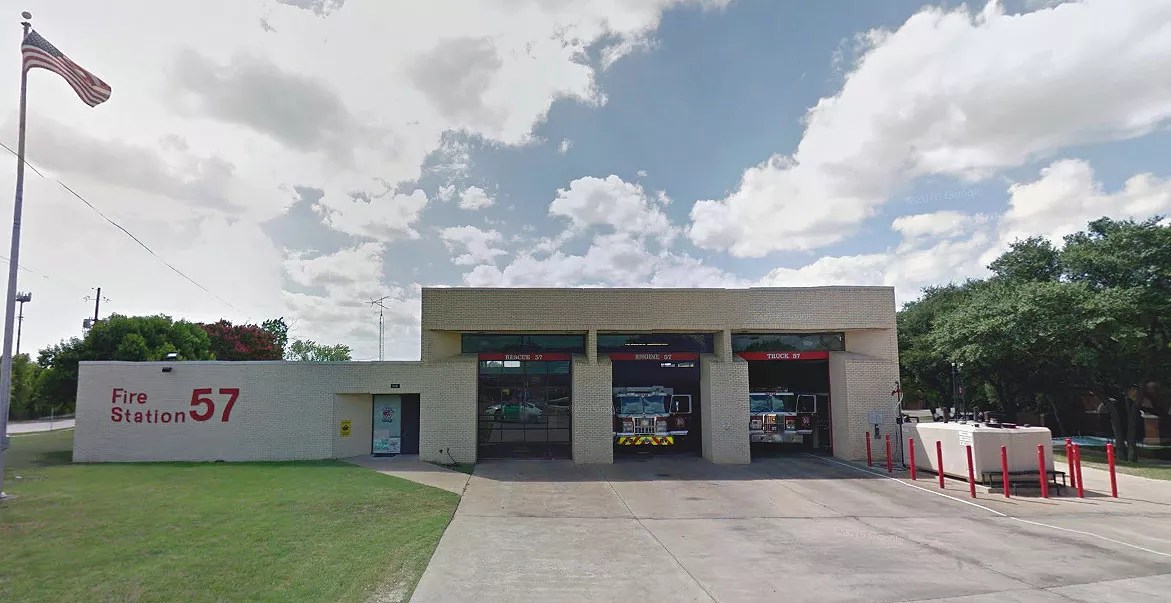
Map data 2017 © Google

Audio By Carbonatix
As Texas’ stringent abortion laws continue to hold sway, a growing number of babies are being abandoned in Texas. Experts say a lack of education is to blame for unlawful child surrender.
“A lot of times [mothers are] just scared,” said Tiffani Butler, a spokesperson for the Department of Family and Protective Services (DFPS) that covers North Texas. “Their hormones, their emotions are everywhere. They’re in shock. They don’t really know what they just went through. A lot of times they just went through it by themselves.”
Reports of six illegally abandoned babies in just three months in Houston has brought the issue of unlawful child surrender back into the spotlight recently. Two of the babies were dead when discovered. In July, Houston police arrested Everilda Cux-Ajtzalam, a teen mom of one of the six babies. Cux-Ajtzalam, a Guatemalan citizen, gave birth to a baby boy in a parking lot, tied him in a bag and placed the bag in a nearby garbage bin. A passerby heard the infant crying and he was rescued and placed in foster care. Cux-Ajtzalam said she had been raped by a family member and did not know she was pregnant until the third trimester. She has since been charged with felony abandonment of a child.
In 2022, just one abandoned baby was discovered in the Houston area. Since then, abortion policy has been more tightly controlled by the states, and the rate of abandoned babies in Houston has increased 500%.
“When the law changed, during the summer was that first few months we had a 300% increase in hotline calls,” said Heather Burner, the executive director of the National Safe Haven Alliance (NHSA).
The string of baby abandonings in Houston is a repetition of history. After 13 babies were abandoned in the city in 1999, then-Gov. George W. Bush signed the safe haven, or Baby Moses, law. The law, the first of its kind and since adopted in all 50 states, allows parents to surrender their babies at designated safe spaces without facing criminal charges. Each state has separate stipulations, but Texas has some of the most liberal surrendering rules.
Cux-Ajtzalam would have had 60 days to surrender her baby at a fire station, an emergency medical service station or a hospital. Without identifying herself, the young mom could have handed the baby over, filled out a brief medical history and then relinquished her parental rights. The old trope of leaving a baby on the doorstep of a fire station without a proper handoff is illegal, and women who do so are subject to prosecution.
Baby abandonments are often tied to low-income areas. Struggling young women with limited financial resources appear to be the likeliest to abandon a baby, but that isn’t always the case. In November, a dead baby was discovered in a sanitation truck in Ellis County. The baby is assumed to have been picked up from a wealthy gated community in Ovilla. Burner says she’s helped women in every walk of life.
“When we have so many calls from women that say, I wish I could keep my baby, but I can’t afford it because I have other children, that’s devastating to me,” said Burner.
According to the DFPS, in fiscal year 2024, which ended on Sept. 1, nine babies were abandoned in the Dallas area. Five of those babies were abandoned through the safe haven law.
“This is a health issue,” said Burner. “You don’t need to address all of the other pieces just to let someone know if there is a pregnancy, that there are safe options and there are safe places to go. It’s pretty easy to put into a health curriculum.”
Since September, only three babies have been abandoned through safe haven laws. A criticism of the bill passed under Bush is that it came with no funding. There was no campaigning about the new law, and signage at safe haven locations is still not required.
“Many of the fire stations and hospitals don’t even have signs indicating that they are a safe haven provider,” said Buner. “We come from a position of almost failure.”
To combat this, Patsy Summey spent 10 years working in Dallas trying to educate women and healthcare providers through Baby Moses Dallas, a nonprofit organization that spearheaded campaign work related to the issue. “It’s a choice for you and a chance for your baby,” read the posters that Baby Moses Dallas hung across the city. Burner agrees with Summey when she says women just don’t know it’s an option.
“It’s really only when they hear about babies being abandoned or found dead,” Burner said. “They’re found on someone’s doorstep, you begin to hear what safe haven is and what that law is. It’s really been a disservice, I think, to women and families that are looking for safe alternatives.”
Summey personally distributed information on safe haven laws at every hospital and fire station she could get to. She printed pamphlets in English and Spanish, and she spoke to firemen and nurses who didn’t know about the law. In 2015, Baby Moses Dallas stopped their outreach. The birthrate for teenagers dropped to a historic low, and baby abandonments had been on a steady decline. But with stricter abortion laws and the educational lapse caused by the pandemic, Summey urges for someone to pick up where she left off.
“We need to educate again,” she said.